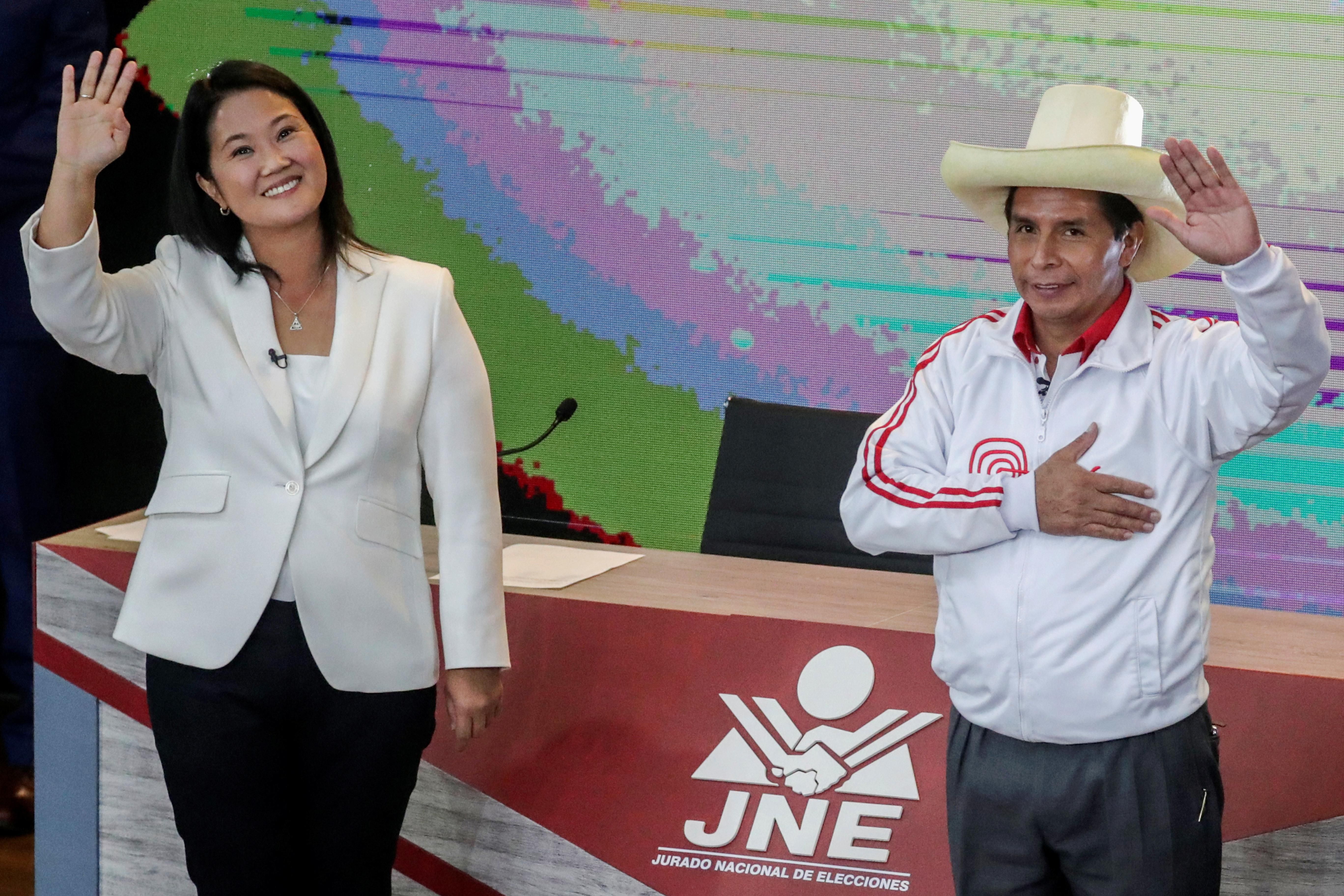What We’re Watching: Peruvian presidential runoff, EU push to tax multinationals, Japan’s post-Olympics election
Peru's divisive choice: Peruvians head to the polls on Sunday to choose between two deeply polarizing candidates in the presidential runoff election. One is Pedro Castillo, a far-left yet socially conservative union leader and teacher. Castillo wants to rewrite the constitution to curb the power of the business elite and distribute more mining wealth to social programs. The other is rightwing firebrand Keiko Fujimori, who says she would continue the free-market policies championed by her strongman father in the 1990s. Fujimori says the country needs a demodura ("hard democracy"), a somewhat milder version of the dictablanda ("soft dictatorship") her dad once led. Castillo is beloved by rural Peruvians and anti-establishment urban voters, but his embrace of Marxism and Venezuela may alienate moderates. Fujimori, for her part, is backed by big business, but very unpopular outside her base, and negatively associated with her father's authoritarian rule and corruption — not to mention her own multiple legal troubles. Castillo is currently leading in the polls, but Fujimori has a shot at victory if voter turnout is lower than expected.
EU's new law to tax multinationals: After five years of negotiations, the EU Parliament has reached an agreement on tax guidelines for multinational corporations operating within the 27-member bloc. Under the new law, American behemoths like Apple, Amazon, and Google that make more than $916 million annually in two consecutive years will have to report their income, taxes, and number of employees across all EU countries, as well as in certain non-EU states designated on a tax-haven "blacklist," like the Cayman Islands. For years, countries like France have been calling for stricter tax rules for large corporations — particularly Big Tech firms — that flood EU markets yet pay scarce taxes back to their governments. While this is a big development, the text of the law will now have to go through the labyrinthine Brussels bureaucracy, and ultimately get unanimous consent by all 27 EU member states. Given that EU countries like Ireland and the Netherlands have greatly benefited from operating as tax havens for multinationals to stash their profits, Brussels will need to engage in lots of bargaining to get the law through. Meanwhile, the Biden administration has been pushing hard for a global minimum tax. If the EU gets this done, it will surely push things in that direction.
Japan's snap election: Japan's Prime Minister Yoshihide Suga is planning to call a snap election after the Tokyo Olympics, set to begin next month. Suga was initially popular when he took over from his predecessor Shinzo Abe last summer, but his approval ratings have rapidly declined in recent weeks due to his insistence on holding the Olympics, despite widespread opposition amongst Japanese who fear the games will give rise to new COVID outbreaks. Japan's sluggish vaccine rollout has also hurt the ruling Liberal Democratic Party, which is now worried about losing its majority for the first time in almost a decade. And there's reason to be concerned: less than two months ago, the LDP lost all three special elections to fill parliamentary seats — seats that were vacated by LDP members implicated in bribery scandals at a time when the Japanese people are becoming increasingly frustrated with government corruption. Suga will now have to pull out all the stops — perhaps including a new stimulus package to revive Japan's pandemic-battered economy — if he wants to stay in power.
